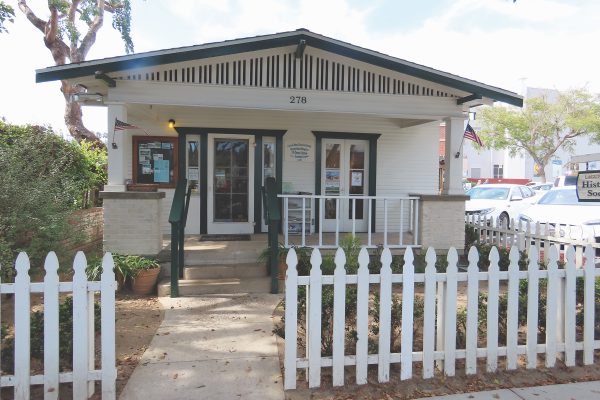
A coalition of historic preservation groups has sued the California Coastal Commission, claiming the panel failed to adequately consider the environmental impacts of the Laguna Beach Downtown Specific Plan and voluntary preservation guidelines for many property owners.
The Laguna Historic Preservation Coalition, Village Laguna, and Preserve Orange County are listed as petitioners in the June 6 complaint filed in San Francisco County Superior Court. All three were vocal opponents of the Specific Plan unanimously approved by the Coastal Commission in December.
The preservationists are asking a judge to order the Commission to set aside its approvals of the updated Downtown Specific Plan and historic preservation ordinance.
“Our organizations filed suit to enforce California environmental laws after the Coastal Commission amended Laguna’s Local Coastal Program (LCP), which created a newly ‘voluntary’ historic preservation program and revoked the Historic Resources Inventory. Sixteen historic preservation groups across the state and the National Trust for Historic Preservation also objected to the LCP changes due to the obvious impacts on the historic fabric of Laguna Beach,” said Catherine Jurca, a co-founder of the Preservation Coalition and Caltech English professor.
A Coastal Commission spokesperson said the agency doesn’t comment on litigation. City Attorney Phil Kohn also declined to comment for this story.
The new complaint is the latest salvo in a year-and-a-half-long legal battle between historic preservationists and city leaders over whether Laguna Beach followed state environmental law when loosening rules for major remodels of structures that could be recognized as historic resources because of their architecture or connection to local history.
At the heart of the matter is whether the City Council had the authority to ax references in city law to a 1981 Historic Inventory of “historically significant architecture” contributing to the village character that attracted many homeowners to buy in Laguna Beach. The Coastal Commission concurred with the city councilmembers in February.
Property rights advocates have argued against the Historic Inventory, claiming it impedes owners’ enjoyment of maintained homes and their ability to sell at market value.
“Bowing to property owners’ demands to alter or replace historic buildings with those of ever-greater mass and scale, the LCP amendments decree owner consent as a prerequisite to identifying and protecting local historic resources. Such consent is irrelevant to historic merit, and now hundreds of City-identified historic resources rich with California character will be newly at risk of substantial alteration or demolition,” petitioners’ attorney Susan Brandt-Hawley wrote in the complaint.
The preservationists have also asked for reasonable legal costs and attorney fees.
Another project at issue in the new complaint is the Downtown Specific Plan update. Laguna Beach initiated an update to the Downtown Specific Plan in 2015, and following many public hearings on the hotly-debated plan the City Council green-lighted the changes in 2020.
In February, the Coastal Commission denied the City’s submitted plan but suggested modifications. The City Council has since agreed to make these changes.
The Historic Preservation Coalition appears to have endured a setback in another legal action it brought against Laguna Beach for approving a major remodel proposed by the Kirby family.
Superior Court Judge Randall Sherman held that the Coalition and fellow petitioner Historic Architecture Alliance didn’t make a sufficient “fair argument” that the project would negatively impact a historic resource, 369 Hawthorne Road.
“In light of the facts contained in the Administrative Records, the court concludes that there is no substantial evidence supporting a fair argument that the project may cause a significant adverse change to a historical resource,” Sherman wrote.
Brandt-Hawley declined to comment on the May 20 tentative ruling.
A case management hearing in the Historic Preservation Coalition’s latest case is set for Aug. 26 in San Francisco County Superior Court.





Village Laguna strikes again…God save Laguna from these lunatics.